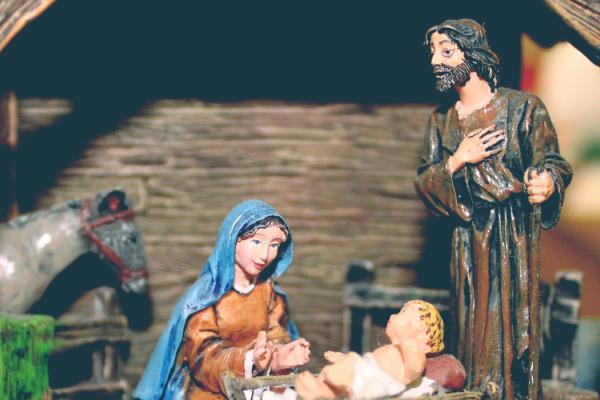LAST DECEMBER, my daughter, Zipporah—who has taken to acting out the Christmas story using our wooden nativity set—observed that our crèche was missing a “mean king” figurine. That got me to thinking: I have never seen a nativity set with a King Herod figure.
We tend to close the curtains and go home for a family dinner right after the Magi bow before Jesus with their gifts of gold, frankincense, and myrrh.
But after the Magi head home, Joseph is warned in a dream to escape Herod’s genocidal tyranny by fleeing to Egypt with his wife and child.
We don’t know how the Holy Family was treated when they reached that foreign country. Were they welcomed or feared? Did Egyptians help this vulnerable family to resettle or did local carpenters fret that Joseph might steal their jobs? Was Jesus befriended by other children or viewed as a potential disease-carrier?
Compassion for the world’s estimated 21.3 million refugees—individuals who have fled their countries because of a credible fear of persecution—competes with our own fear that the violence they flee might impact us. This polarized reaction shapes the response by the United States and others to the global refugee crisis.
Nine in 10 Protestant pastors in the United States say that, as Christians, we have a biblical responsibility to care for refugees and other foreigners based on clear biblical injunctions, according to LifeWay Research. The same survey found that only 8 percent of local churches are helping refugees—nearly half acknowledged a sense of fear in their congregations regarding the arrival of refugees.
White evangelicals, by a margin of 2-to-1, were opposed to increasing the number of Syrian refugees admitted to the U.S., according to the Pew Research Center. (A majority of white mainline Protestants were also opposed and a slim majority of Catholics and black Protestants were in favor.) It’s ironic that followers of Jesus would be so afraid of refugees, given that we worship one!
Refugees are not terrorists. Most people do not have a working knowledge of the extremely thorough process each refugee must complete before admittance to the United States. This screening process, which is coordinated between the U.S. Departments of State, Homeland Security, and Defense along with the National Counterterrorism Center and the FBI, usually takes at least 18 months once someone is referred to be considered for resettlement. It’s the most thorough scrutiny that any category of visitors or immigrants entering the U.S. is required to undergo.
Many years after Jesus’ flight to Egypt, my co-worker Durmomo Gary made a similar trip. Gary worked as a Bible translator in Sudan before being threatened with violence and fleeing north. For several years he and his family lived as refugees in Egypt until they were accepted by the U.S. State Department for resettlement in Chicago. World Relief—an evangelical organization that is among nine agencies authorized by the State Department to resettle refugees—assisted them, and they were welcomed by a local church. Gary has served as pastor of the Sudanese Community Church. He’s completing his Master’s degree at Moody Theological Seminary. And he’s joined the staff of World Relief, helping other refugees.
The U.S. Refugee Resettlement Program has a proud history, but its future is politically precarious. In November 2015, the House of Representatives voted with bipartisan support to block the resettlement of all refugees from Syria and Iraq. The Senate stopped this action, but similar legislation could easily re-emerge. A separate bill last year sought to shut down refugee resettlement altogether.
While local churches—working in collaboration with World Relief, Church World Service, Lutheran Immigration and Refugee Service, the U.S. Conference of Catholic Bishops, and others—stand ready to welcome refugees, we can do so only if there are policies in place to keep the country open to carefully vetted refugees.
After spending his early years as a refugee in Egypt, Jesus later exhorted his disciples to welcome others as we would welcome him. If we fail to extend this welcome out of fear or any other reason, we reject Jesus himself. We’re saying there’s no room in the inn. What role will we play in the Christmas story?

Got something to say about what you're reading? We value your feedback!

